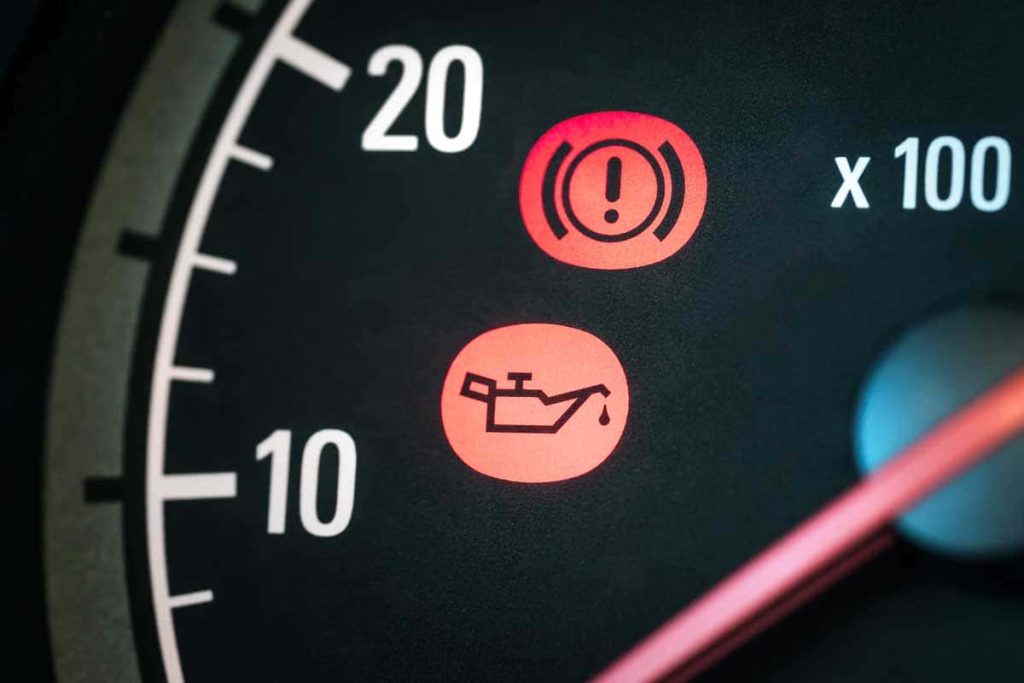So here’s a question that we get asked a lot about – can low oil cause overheating?
We all know that when your vehicle is low in coolant, your engine tends to overheat. But is this also an issue when you have a low level of oil?
If this is a problem that you encounter in your vehicle, let us explore why exactly your vehicle overheats and if low oil level causes it. Let’s get started.

Can Low Oil Cause Overheating?
Your vehicle needs engine oil for lubrication purposes. This way, heat is taken away from the engine, as this circulates through your pump and oil filter. When you have a low level of oil, this means it absorbs more heat, which then leads to overheating.
When there is a low oil level, more friction tends to occur within your engine. And we all know that as friction exists, there is more heat.
Now, engines are usually capable of taking heat. In fact, diesel and petrol are able to combust more efficiently when the temperature is high. This is why when you have a hot engine, this should be good. Well, as long as it is within normal parameters.
You will know that you have a low oil level when you see the warning light for low oil pressure in your vehicle. This is a message sent by your oil pressure sensor to your ECU, which then alerts you.
Now, there are limits when it comes to the level of heat that your engine oil can run. It should not be over 240 Fahrenheit, otherwise, oil tends to separate from its additives and can become a problem.
Many engines should have no problem with handling 230 Fahrenheit. In fact, many engines now use aluminum alloy. This material is lighter, and it is capable of tolerating heat, as compared to iron blocks and steel.
But when your oil level is low, this causes inefficiency to your engine. There are also some struggles that may exist with other components that your engine has to function well. Furthermore, having a low oil level can put a strain on your water pump. Your serpentine belt is what powers your pump.
Speaking of this belt, it snakes through your engine bay and offers power to your other systems. Then, it is capable of circulating at a higher speed because it is hooked up to your engine crankshaft that powers your belt.
When you notice a poor performance to your engine, this means there is a problem with your serpentine belt. As a result many other systems that rely on this component are unable to function perfectly. This includes the power steering pump, air conditioning compressor, and your alternator that all rely on engine oil for optimum performance.
Your vehicle needs your radiator and coolant to eliminate overheating issues. But if you have a faulty water pump, it is unable to pump heated water from your engine and onto the radiator. This prevents it from cooling down, which retains heat in the water and causes the engine to overheat.
Now, it is not only a low oil level that can cause overheating. It can also happen with old oil. If you have your vehicle parked a long time, this means it is not getting regular maintenance that it needs. This is why the oil may be stagnant, which can even have some debris or contaminants present in it.
So, what exactly makes oil old?
First, you need to recall when the last time was that you had your oil changed. Each time you change your oil, you also need to have a replacement oil filter installed. But there are DIY-ers that are unable to remove and change the oil filter. This is why they fail to replace it with a new one. Hence, the oil becomes contaminated and becomes considered old.
The farther the distance you drive, the more circuits of the pump, filter and engine your oil makes. This is why you need to get your oil changed every 3000 to about 6000 miles. As with a fully synthetic oil, this may last a longer time before it is categorized as old.
Additionally, you need to consider how long your car has been stagnant or parked. When you leave oil stuck in the engine for a long time – and you have not been driving your vehicle at all, this causes the molecules of oil to separate from additives. This occurs at a higher temperature, at most times. Then, the oil begins to oxidize.
You cannot prevent this scenario from happening since oxygen naturally reacts to the oil. There is also sludge formed because the oil sits in the pan, which prevents it from getting distributed to the top portion of your engine. Hence, with oil oxidizing, overheating can also occur as a sludge buildup happens.
When you have an older engine, it is not usually a concern for overheating. But they do wear quicker than new ones. There may be wear to the cylinders, pistons, rings, and the rods, which then leads to frictional heat. But if you keep your vehicle well maintained even if it is old, there should not be problems with overheating.
Wrap Up
With all these things in mind, there are many reasons why overheating occurs to your engine. It may be because of low oil level, which leads to more friction, and it results in overheating. But other things come into play, as well, such as an old oil, poor maintenance, and some issues with key components such as the water pump and serpentine belt.
Thus, it is crucial to get your vehicle maintained regularly to eliminate these concerns with overheating. By doing so, you can keep your vehicle running well and prevent unexpected downtimes and costly repairs typical with cars that are not maintained properly.